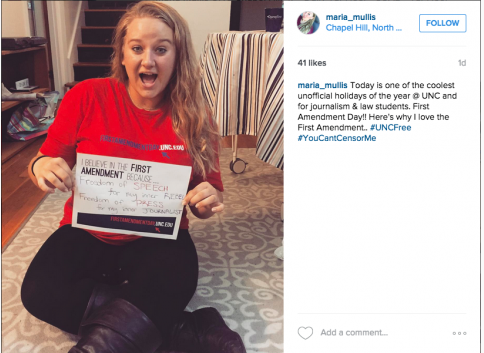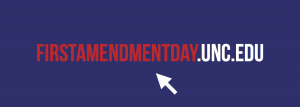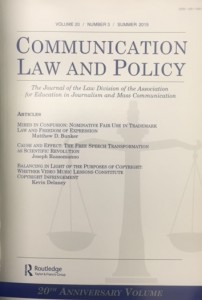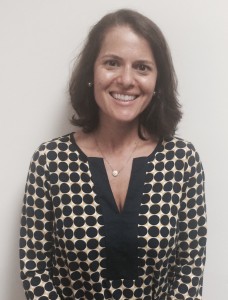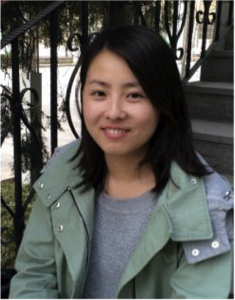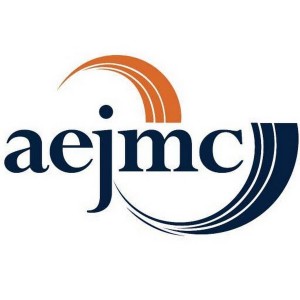 The UNC Center for Media Law and Policy’s director of communications and three graduate students are presenting research papers in the Law and Policy Division at the Association for Education in Journalism and Mass Communication’s (AEJMC) national convention in San Francisco this week. One of those students also had a media law paper accepted in the Cultural and Critical Studies Division.
The UNC Center for Media Law and Policy’s director of communications and three graduate students are presenting research papers in the Law and Policy Division at the Association for Education in Journalism and Mass Communication’s (AEJMC) national convention in San Francisco this week. One of those students also had a media law paper accepted in the Cultural and Critical Studies Division.
The media law center’s director of communications is Tori Ekstrand, an assistant professor in the UNC School of Media and Journalism. Her paper won second prize among faculty papers.
Congratulations, everyone!
The papers went through a process of blind review, with students and faculty competing in the same category. These are the authors’ names, paper titles, and abstracts:
Victoria S. Ekstrand, “A First Amendment Right to Know for the Disabled: Internet Accessibility under the Americans With Disabilities Act (ADA)”
The Americans with Disabilities Act (ADA) will celebrate its 25th anniversary in 2015. Enacted by Congress and signed into law by President George H.W. Bush, the ADA was designed to ensure that people with disabilities are given “independence, freedom of choice, control of their lives, the opportunity to blend fully and equally into the rich mosaic of the American mainstream.” Title III of the ADA defines what kinds of public and private spaces must provide access and accommodations to the disabled. Missing from that list, because of the ADA’s timing, is the Internet, effectively shutting the disabled out of the rich marketplace of ideas online. This paper examines both the case law surrounding this omission and the foot-dragging of the executive and legislative branches in extending Title III to the Internet. It argues that extending Title III to the Internet may be bolstered by First Amendment right-to-know principles.
P. Brooks Fuller, “The Angry Pamphleteer: The Political Speech-True Threats Distinction under Watts v. United States and its Impact on Twitter” (Brooks is a Ph.D. student in the School of Media and Journalism.)
Since the 1969 Supreme Court case Watts v. United States, courts have consistently held that the government may punish threatening speech so long as it amounts to “true threats” rather than protected political hyperbole. Since Watts, lower courts have enjoyed tremendous flexibility to craft the distinction between political speech and true threats. This paper explores that distinction in the context of violent political expression on Twitter. This paper analyzes how courts have interpreted Watts and finds that lower courts have applied three distinct tests for political speech, which this paper calls 1) criteria-based analysis, 2) pure First Amendment balancing, and 3) line-crossing analysis. This paper concludes that of these three tests, criteria-based analysis is particularly restrictive of speech, particularly when the speech at issue takes place in non-traditional political speech channels such as Twitter. Speakers now use Twitter with increasing frequency to post impulsively and vent to or about public officials, a practice that lies at the core of First Amendment protection. This paper demonstrates that flexible First Amendment balancing and line-crossing analyses, particularly in the context of violent political expression on Twitter, more aptly address these realities.
P. Brooks Fuller, “Pornography, Feminist Questions, and New Conceptualizations of ‘Serious Value’ in Sexually Explicit Media” (in the Cultural and Critical Studies Division)
During the 1980s, anti-pornography advocates waged a litigious, regulatory war against perceived social ills caused by pornography. A cultural dialogue persisted, questioning the social value of pornography. Proposed criminal regulations of pornography ultimately stalled in American Booksellers v. Hudnut (1985). This paper analyzes post-Hudnut cases under legal and qualitative methodological frameworks and finds that although courts generally assume pornography’s direct media effects, several recent cases reflect pro-pornography feminist conceptualizations of social value.
Kyla P. Garrett, “Penetrating the Public Health Debates in the Adult Film Industry: An In-Depth Case Analysis of the Health-Based Arguments in Vivid Entertainment, LLC v. Fielding” (Kyla is a master’s graduate of the UNC School of Media and Journalism and will enter its Ph.D. program this fall.)
In an effort to curb the spreading of sexually transmitted infections from the adult film industry to the surrounding community, the citizens of Los Angeles County, California, where 80 percent of all pornographic films are produced, passed the Safer Sex in the Adult Film Industry Act in November of 2012. Also known as Measure B, the ordinance requires the use of condoms during the production of all vaginal and anal sex scenes in hardcore porn. Industry leader Vivid Entertainment, LLC, responded by filing suit against Los Angeles County’s Department of Public Health in January of 2013 to obtain an injunction against the ordinance, claiming that the measure unconstitutionally infringes on the industry’s and its actors’ First Amendment rights to freedom of expression. Much of the debate surrounding Vivid Entertainment, LLC v. Fielding concerns the constitutionality of the ordinance, but little discussion reviews the underlying health claims presented in the case and the ordinance itself. This is an important case to explore as it is a case of first impression and could set a key precedent regarding health policy and First Amendment protected expression. The case is also likely to set precedent for future regulations specific to the adult film industry. Therefore, this paper first identifies the health-based arguments presented in Vivid Entertainment, LLC v. Fielding and then, utilizing a public health and health communication lens, analyzes the validity of these arguments to ultimately consider the constitutionality of Measure B.
Nicholas Gross, “Native Advertising: Blurring Commercial and Non-Commercial Speech Online” (Nick is a Ph.D. student in the School of Media and Journalism.)
Mixing advertisement with art, entertainment, news, and/or other content on Internet publications, native advertising straddles the boundary between commercial and noncommercial speech. As a species of digital hybrid speech, native advertising is examined through the lens of case law that has faced the task of separating commercial from noncommercial speech. Because native advertising blurs the commercial/noncommercial speech divide, the Federal Trade Commission must approach policy formation for this new digital practice with an understanding of the commercial/noncommercial speech dichotomy.
